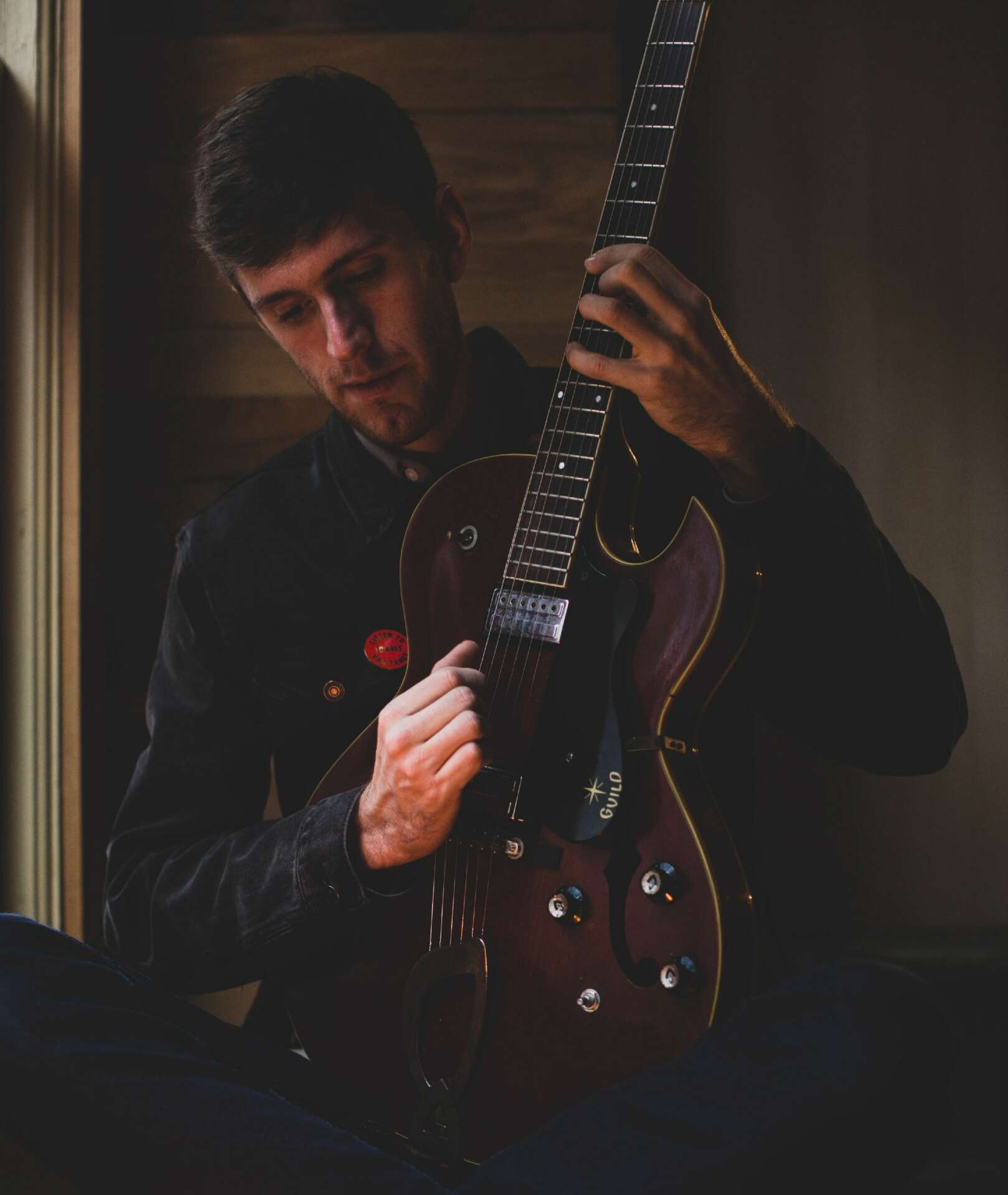We were lucky to catch up with Michael James recently and have shared our conversation below.
Hi Michael, thanks for joining us today. Are you happy as a creative professional? Do you sometimes wonder what it would be like to work for someone else?
These were questions I asked myself nearly every moment of my 20’s. In the long term I always felt, “Music is worth everything,” but that answer couldn’t have been more volatile in the interim.
It’s remained volatile for me as I move into another decade of making music, but noticing that consistency has somehow made me feel more at ease about it all.
Lately, I’ve been thinking that happiness *as a creative* is at best a secondary priority. You have to avoid identifying too much with what you do, and that’s not a place you arrive at and you’re finally safe – it’s a state of mind you maintain for your whole life.
In some ways the more content you feel *as an artist*, the more likely you are to repeat yourself because you are establishing a feedback loop between your identity and your worth. You’re thinking too much about the “you” involved in creating.
That feedback loop can quickly turn into a death knell mantra – “This is what they like, this is what I’ll do.” It’s nearly impossible to ignore, and that’s why we have so many artists that focus on quick, reliable entertainment that hits the mark needed to refill the self-worth gas tank but doesn’t last or feel fresh.
And no one is above this line of thinking, including myself. Sometimes I’ve even hurt my process by trying too hard to remain FREE of expectations/audience/genre/
The problem remains – too much prioritizing of self will block the creation of risky and thus possibly transcendent art; too much negation of self will poison your ability to develop and trust in your artistic instincts.
When we talk about how hard it is to be an artist, it’s not just the lack of money or health care. The hardest thing to explain is this mental tightrope walk you have to remain balanced for, every step of the way. The upside is that being engaged this fully in the experience of translation – life begets music begets life – keeps you going. You have no doubts that you’re really living.
As for the normal job question, I used to think that there were set criteria to be considered a “real artist,” – basically that you had to be living in some sort of extreme way.
The reason for this is that the friends I admired most and played music with were usually living in their cars, part-time or full-time, and that allowed for everything to be in service of their music.
These romantic notions of “all-or-nothing” and “real vs fake” are hallmarks of a youthful worldview. They do make you feel good and correct, but I’ve noticed that holding onto that way of thinking makes you cynical over time. The saddest musicians I know are also the ones who are the most invested in their opinions on music. It’s a poignant reminder for me.
I’ve always had jobs working for other people as well as myself, but embarrassingly enough it’s only recently that I’ve realized it has nothing to do with my worth as an artist.
These days, it’s simply about finding ways to bring my bandmates and I into new and exciting environments to be able to push ourselves creatively. How I fund that doesn’t really matter as long as it’s helping us grow.
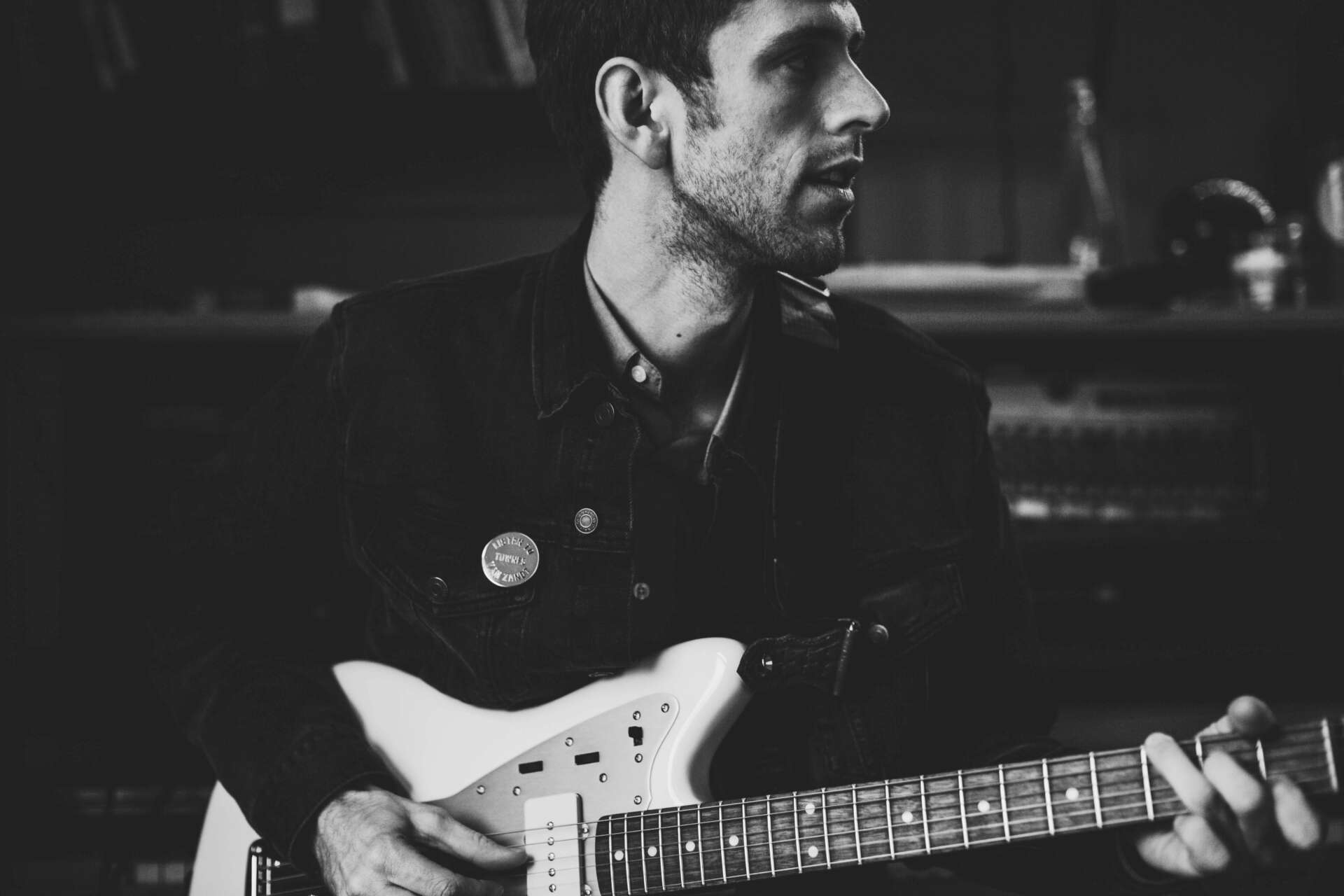
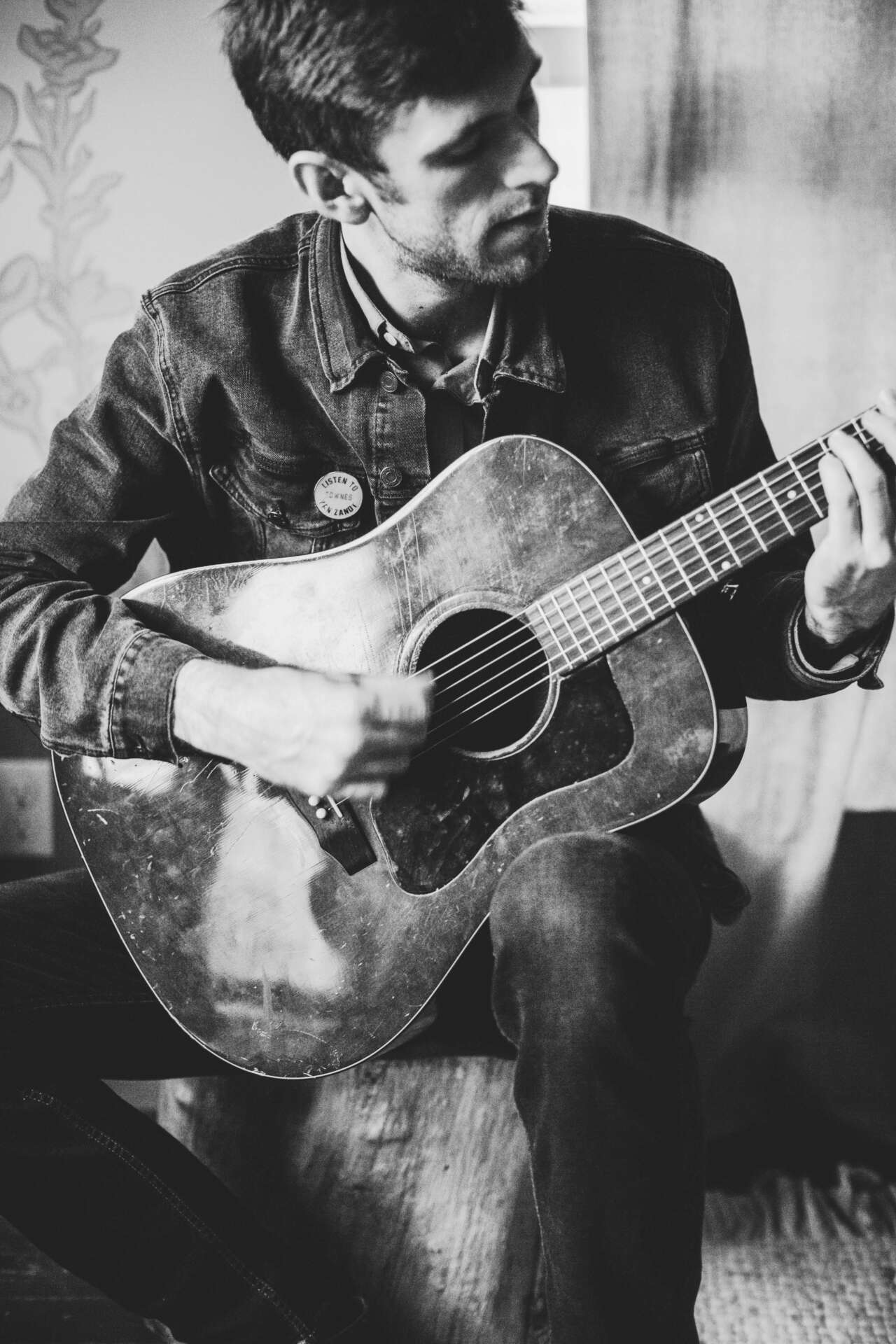
As always, we appreciate you sharing your insights and we’ve got a few more questions for you, but before we get to all of that can you take a minute to introduce yourself and give our readers some of your back background and context?
Absolutely! There are so many ways to answer this question, I tend to do it differently each time.
Basically, everything was chance.
I got into music by chance (a babysitter playing Weezer’s “Surf Wax America” in the car), joined a band by chance (my college dorm-mate introduced me to his songwriter friend from high school), and followed a path of playing/touring/recording for other people by chance (I was asked, and so I learned).
The only thing that really pulled me along, other than an extreme emotional connection to music, was the quality of the people I found myself with. So many years of unforgettable memories in beautiful places with exceptional people. I wouldn’t trade it for anything.
However, by my mid-twenties I found myself touring or joining bands partially out of a sense of escapism. I was denying what I really wanted to do in the service of something that made me feel needed, but not whole.
Over time, the honest communication and emotional support of my friends helped me organize myself and re-evaluate my self-worth. This led to finally listening to the side of me that wanted to write songs and lead a band, and so Delving was born in 2020.
Our music so far has included a little bit of everything I’m drawn to – fiddle, bass synthesizer, drum machines, three-part harmony, noise, fuzz guitar, fingerpicking, the list goes on.
It’s going to change from here, it always will. I’m interested right now in cultivating an overarching “mood” or “approach” to define our next record – instead of trying to write with every sound I love at once.
Even with all the hassles of scheduling, the pains of rejection, and the financial difficulties, it’s still worth it 11 years after I started. Especially for those moments that take us by surprise. Everything that transcends our individual abilities comes from this collective effort to chase down someone’s “what if?” That’s how the band started recording, our bass player Jake simply asked the question – “What if . . . ?”
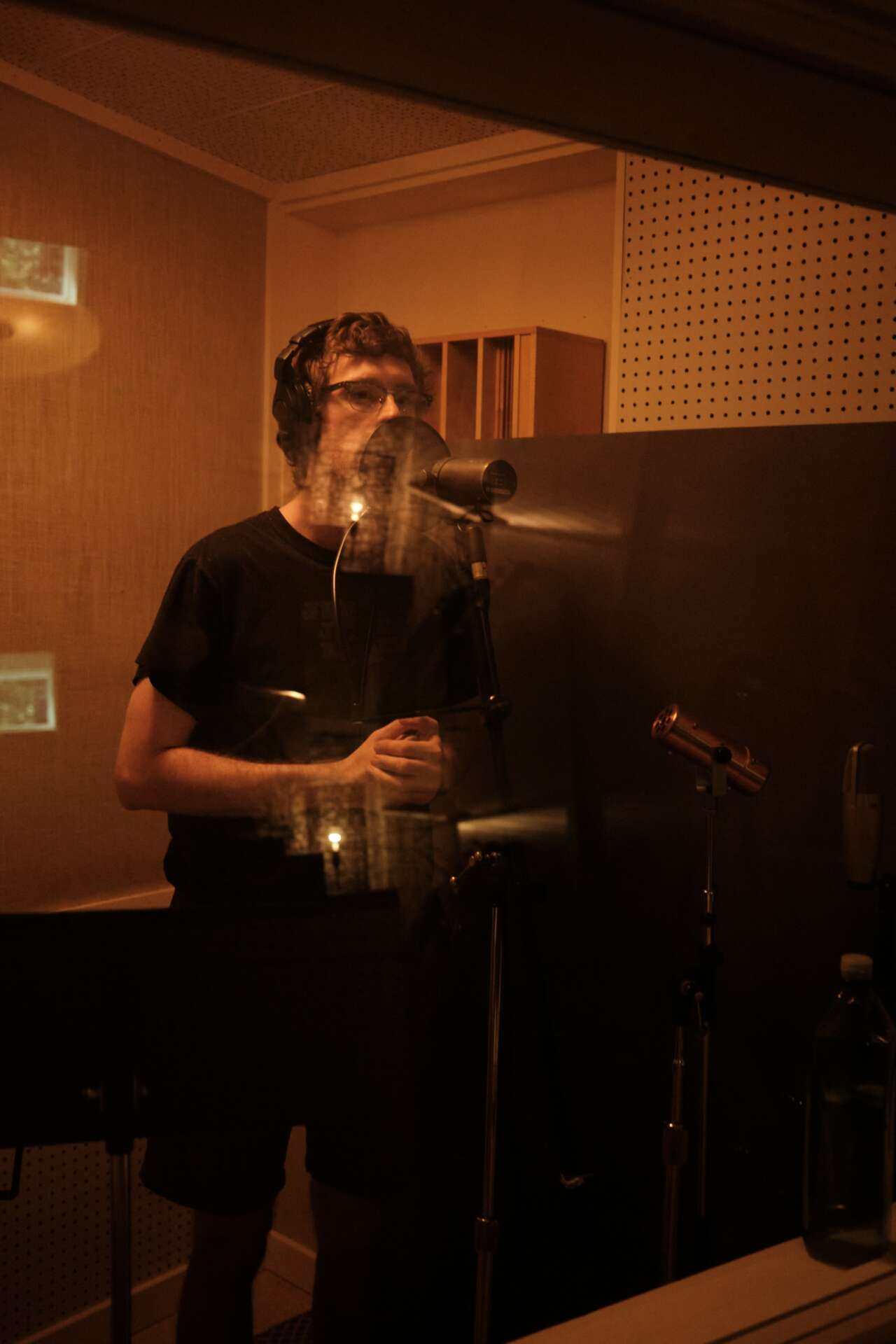
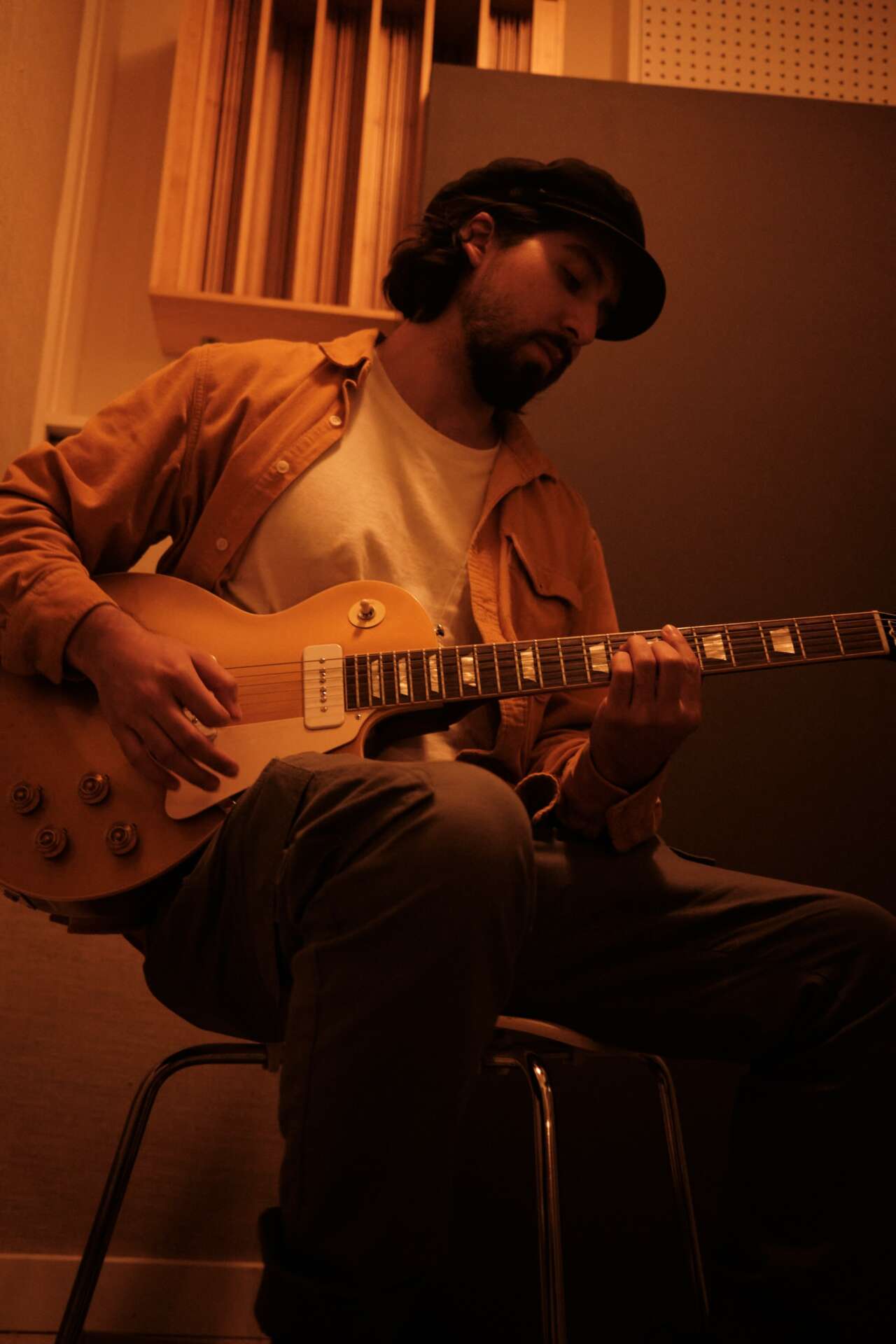
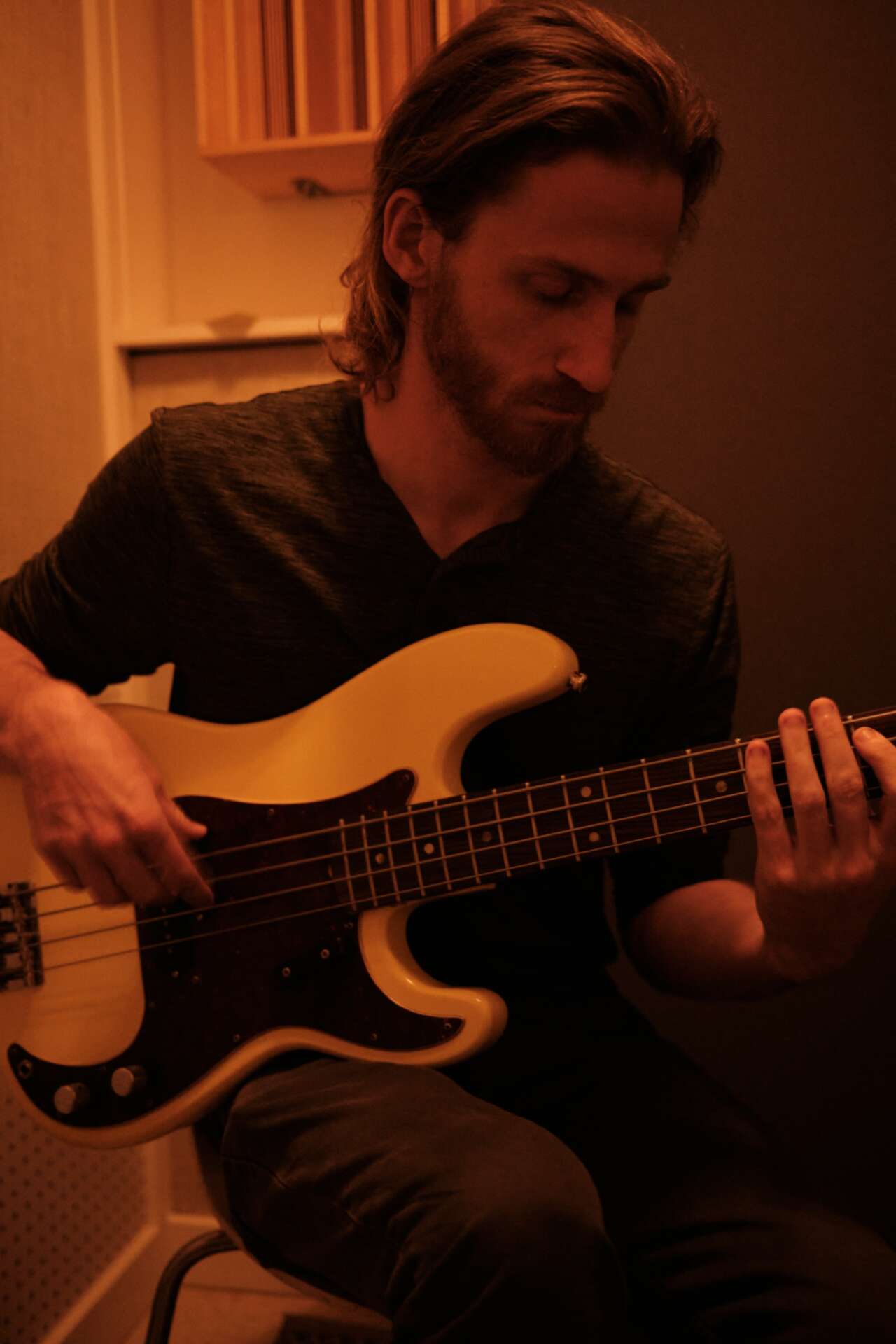
We’d love to hear a story of resilience from your journey.
The answer to your question could really be a whole interview itself, but I’ll try to make it concise.
When I was 20, a mysterious pain started in my forearm that spread to my whole upper body, and within a few months it was everywhere. Doctors never figured it out, though their stop-gap solution was calling it “fibromyalgia.”
The symptoms range from chronic fatigue and pain, spasms, nerve shocks, and inability to sleep/walk/stand all the way to my current issues – namely sciatica and the near-complete deterioration of my leg and core muscles.
I’ve had so many strange experiences, painful experiences, trying to maintain a life of music and travel while dealing with an undiagnosed pain condition.
The simple answer as to why I haven’t stopped playing music is that you can’t give up on something you love. That’s corny and it’s also true.
Through the love of my partner, I’ve finally gathered the courage to start down a path of physical recovery. I’ve spent the past five years mentally restructuring myself in the wake of the nihilism and cynicism that my condition produced. Now it’s time for the next step, and with physical therapy starting this month I’ve been regaining the ability to walk without unreasonable pain for the first time since last September.
If music and the people it brought into my life weren’t there to give me a reason to improve and move through it all, I don’t think I would have.
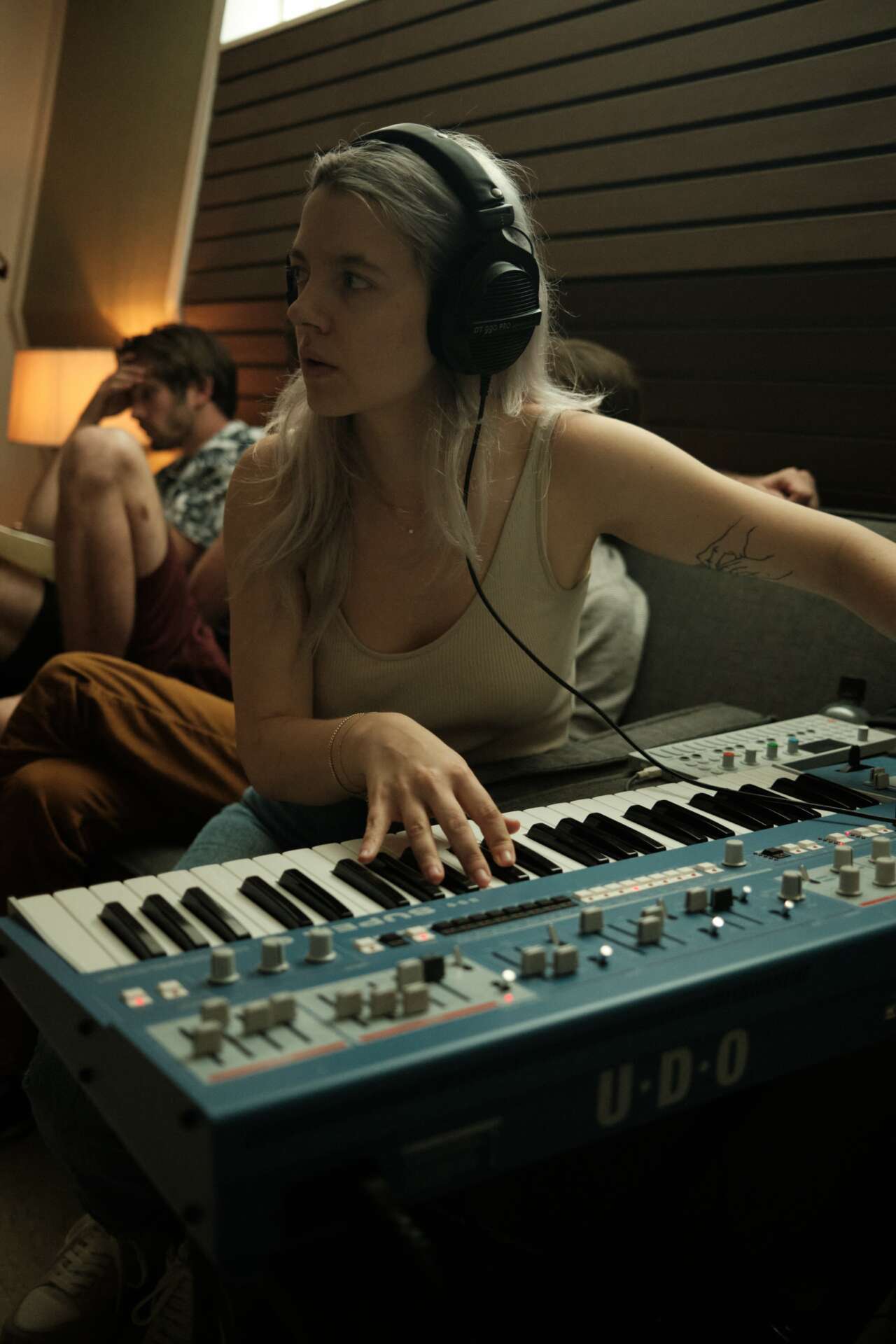
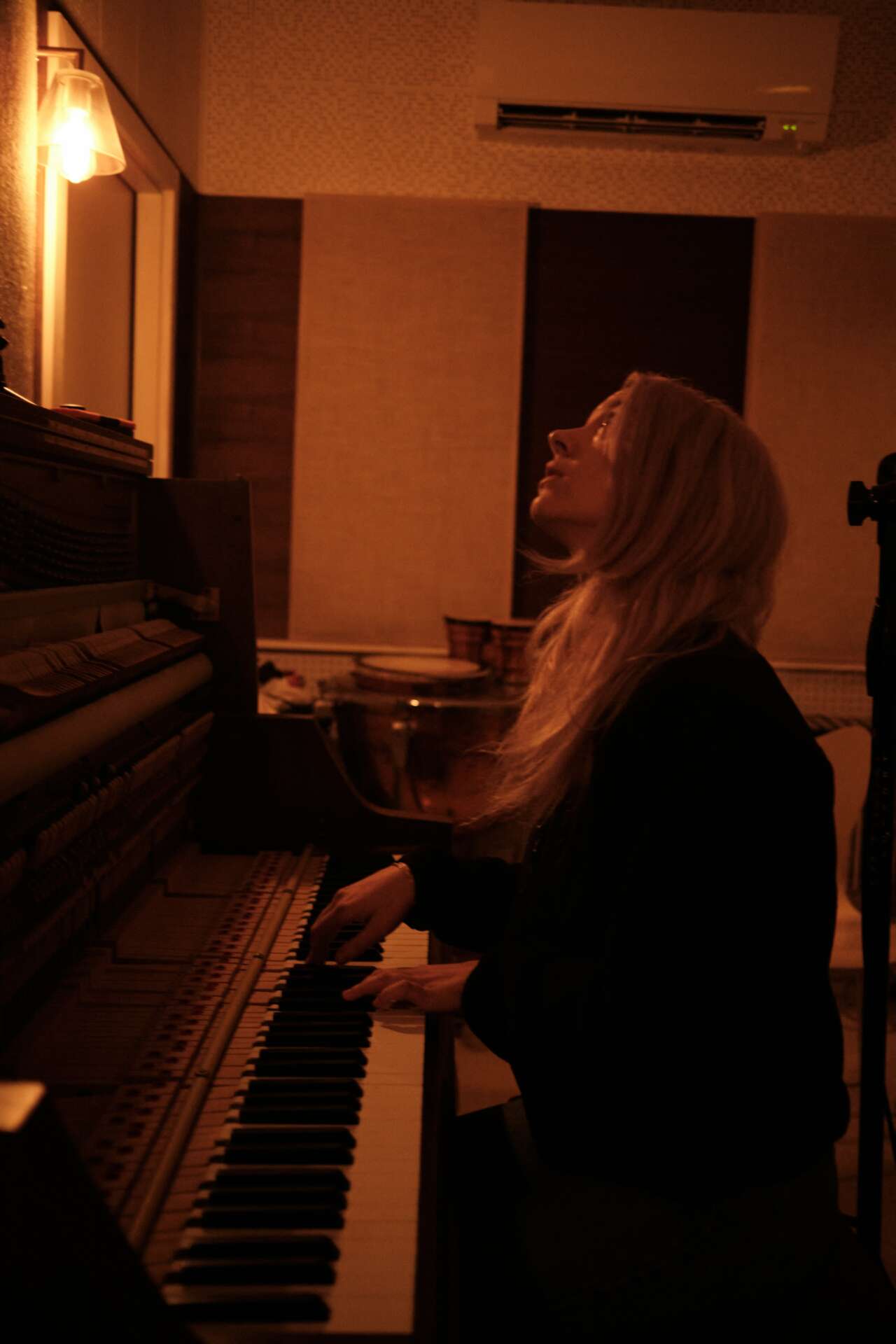
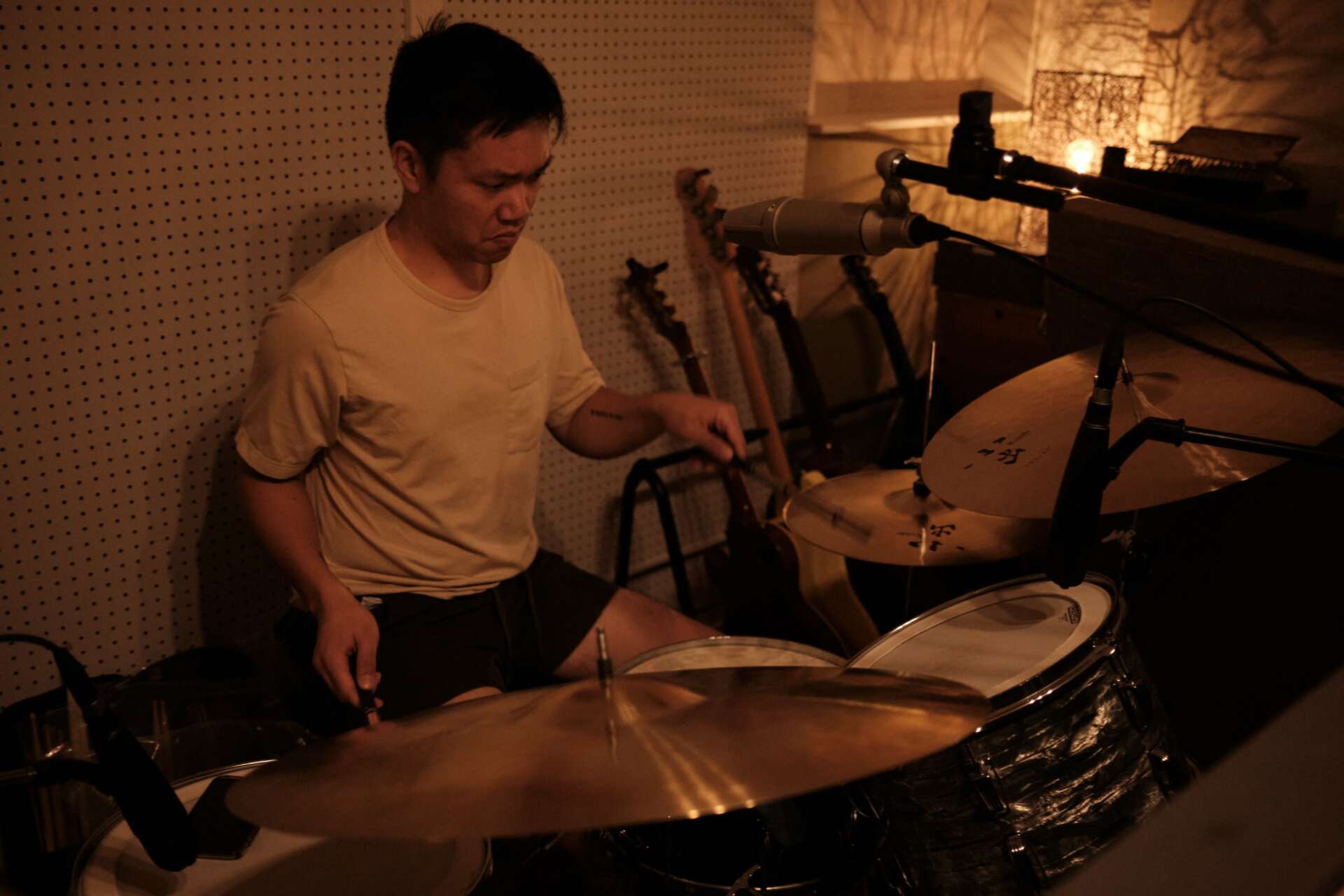
For you, what’s the most rewarding aspect of being a creative?
This one is simple. People. It’s always people. The ones you meet, the ones you play with, the ones you perform for. Sometimes I see parts of our culture, or at least my generation, fetishizing loneliness and isolation, and misanthropy. It’s partially humorous but I detect a bit of a cry for help in there too. We can’t give in to that, it’s not the full story. Driving around America and Europe in a van and playing in small rooms for strangers has taught me that most people in most places are good. None of us are completely good, that’s important to remember, but most of us are mostly good, most of the time. I believe this fully.
Contact Info:
- Website: www.delvingmusic.com
- Instagram: @delvingmusic
- Youtube: https://youtube.com/@delvingofficial
- Other: https://delvingmusic.bandcamp.com/
Image Credits
Photos by Robby Gaar and Sarah Kathryn Wainwright


